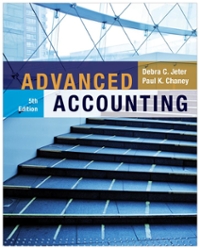Question
Hello - I am working on the following question. I am almost done.It is my stand that the IRS will prevail because of like-kind exchange
Hello - I am working on the following question. I am almost done.It is my stand that the IRS will prevail because of like-kind exchange under Section 1031. However, what I need for the class is toindicate sources which support mydiscussion that an apartment building vs single family residence are unlike. Therefore will not fall into the category of like-kind exchange.Do you know a case or information which will help me support my case?
Ted and Marvin brown purchased an apartment building in building in 2002 as equal tenants in common. After a hectic decade of co-ownership, the brothers decided that their business association should be terminated. This led to the sale of the apartment building and a division of the proceeds. The realized gain on the sale of the apartment building for each brother was 350,000. Ted recognized the gain on his share and used the net proceeds to invest in stock. Marvin wanted to defer any recognized gain, so he worked with a Realtor to identify property that would be eligible for Section1031 like-like exchange treatment. After one prospect failed the Realtor identified a single family home in lake Tahoe that was currently being rented by the owner. Marvin agreed with the choice and acquired the single-family house using the proceeds from the apartment building. Because the single family home qualified alike-like property, Marvin deferred all of his realized gains.After an attempt to rent the property for eight months without success, Marvin concluded that he should not continue to make mortgage payments on his primary house and his rental property. To ease his financial liquidity problem, Marvin sold his principle residence for a realized gain of 190,000 and moved into the Lake Tahoe house. He reported no recognized gain on the sale of his principle residence as the sale qualified for 121 exclusion treatment. the IRS issued a deficiency notice to Marvin associated with the sale of the apartment building. The position of the IRS was that Marvin did not hold the single family residence for investment purpose as required by 1031. Instead, his intention was personal- to use it as a replacement for his current residence that he planned on selling. Who should Prevail and why?
Step by Step Solution
There are 3 Steps involved in it
Step: 1

Get Instant Access to Expert-Tailored Solutions
See step-by-step solutions with expert insights and AI powered tools for academic success
Step: 2

Step: 3

Ace Your Homework with AI
Get the answers you need in no time with our AI-driven, step-by-step assistance
Get Started


